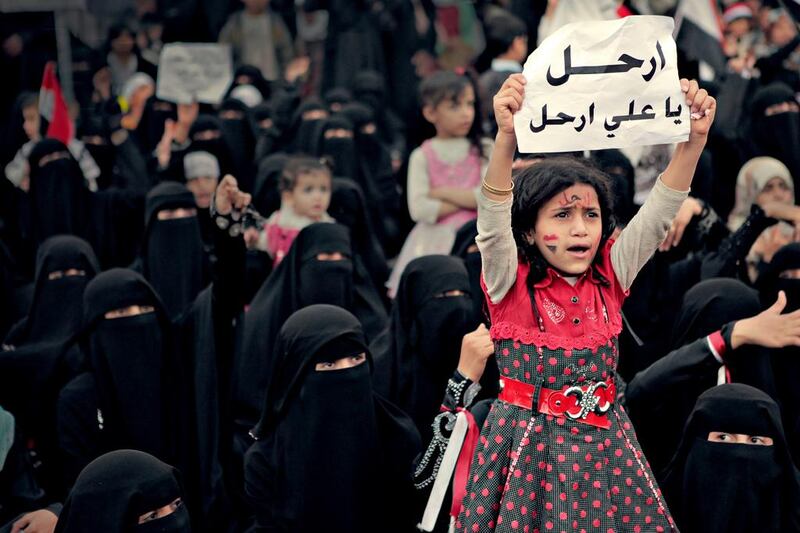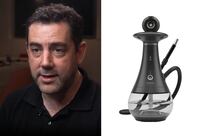Chris Newbould
As the Oscar-nominated Sara Ishaq breathlessly describes her eventful background – Scottish-Yemeni heritage; based between Scotland, Yemen and Egypt; jobs from a television researcher to yoga teacher – it should probably come as no surprise that the path to her debut film, Karama Has No Walls, was not a straightforward one.
The film could easily have not happened. Having grown tired of her role as a television researcher in the Middle East, Ishaq had something of a watershed moment while compiling footage for her own project in Palestine. She was captured and deported by Israeli security forces and had much of her footage confiscated. It was then that she realised she wanted to make her own films and returned to the United Kingdom to pursue a master’s degree in film directing at the Edinburgh College of Art, using her Palestinian footage as a portfolio. It was here that the seeds for Karama were sowed.
“I was chatting about ideas for films with my professors and course mates and they were amazed to find out I was Yemeni. I’d never really mentioned it and everyone just assumed I was from Edinburgh.”
Ishaq’s teachers suggested she focus on a film about Yemen for her end-of-year project, but she wasn’t convinced: “I hadn’t been back to Yemen for five years. I’d just decided it was too difficult to film there – with my family to contend with. They didn’t understand why I wanted to take a camera round war zones and get kicked out of countries and I’d decided it was easier just to avoid the issue.”
The teachers, however, insisted that a film about the culture clash with her family was in itself a great idea. Still unconvinced, Ishaq grudgingly booked herself on a flight to Yemen in February 2011, certain that the idea was “such a cliché”.
“I thought, all right. I’ll go for two weeks. I’ll spend some time with my family, I’ll film them, I’ll make a short film about my relationship with them and my Yemeni background and I’ll get out,” she recalls.
As the date drew closer, with the Arab Spring erupting across the region, Ishaq’s professors began to get nervous about her travelling to Yemen, but she remained unconcerned. “I said: ‘There will never be a revolution in Yemen. You have no idea how complacent and indifferent the people there are to politics. I’ll be back in two weeks.’
I left and the second day I was there the revolution kicked off.”
Initially, Ishaq continued to film her family as planned, but she soon became aware her skills were better suited elsewhere: “I thought, I’ve been to Palestine, I’ve been to protests in Britain and all over the place. How can I be in my own country and not take part? I should be documenting this because nobody knows what’s going on.”
Ishaq extended her stay and continued filming as her family became increasingly politicised. Then came the Karama massacre on March 18, when Yemeni security forces opened fire on anti-government protesters, killing 42 and injuring at least 300.
Ishaq decided a new film was needed: “It was something that really did affect everyone and change everything in Yemen. People who were completely apolitical realised that they had to take responsibility. The military and politicians started changing sides, all pivoting on this one event. I just felt my focus on the family film was no longer appropriate.”
It’s accurate to say that up to this point, the film’s genesis could reasonably be ascribed to an unlikely chain of coincidences — even the camera crew Ishaq used in Yemen were originally working on another film in a Sanaa field hospital. That project had stalled and the crew teamed up with Ishaq.
Things just seemed to fall into place even after filming was complete. Ishaq had contacts at Dubai’s Hot Spot Films who agreed to help with the editing, a task she feels she would have struggled with alone. And a Scottish friend persuaded her to enter the film at his own small Edindocs festival, despite her initial idea of entering the Edinburgh Festival. When Edindocs contacted her to say the festival was one of the select group of Oscar-nominating documentary festivals and that her film was under consideration, she thought they were joking.
“I sent it to my spam mail originally, then slowly realised it was true. If I’d submitted it to any festival other than Edindocs, I wouldn’t have qualified. It was just an amazing chain of coincidences.”
The future looks bright for Ishaq. Not too many filmmakers find their university project on the Oscar shortlist and her second film The Mulberry House, the family study she initially went to Yemen to make, has been released to critical acclaim. She’s also determined to eventually make a film from the footage from Palestine, which first spurred her on the path to independent filmmaking and is already working as a producer and co-writer on a new Yemeni feature film with Musa Syeed, the winner of a 2012 Sundance Audience Award for Valley of Saints.
“This will be my first attempt at fiction, but that’s definitely somewhere I want to go, as well as making more documentaries, and I hope my next film will be my first attempt at directing fiction myself,” she says. “It’s been like somebody, somewhere has been pulling the strings for me so far – everything has gone so well, so I hope that continues.”





